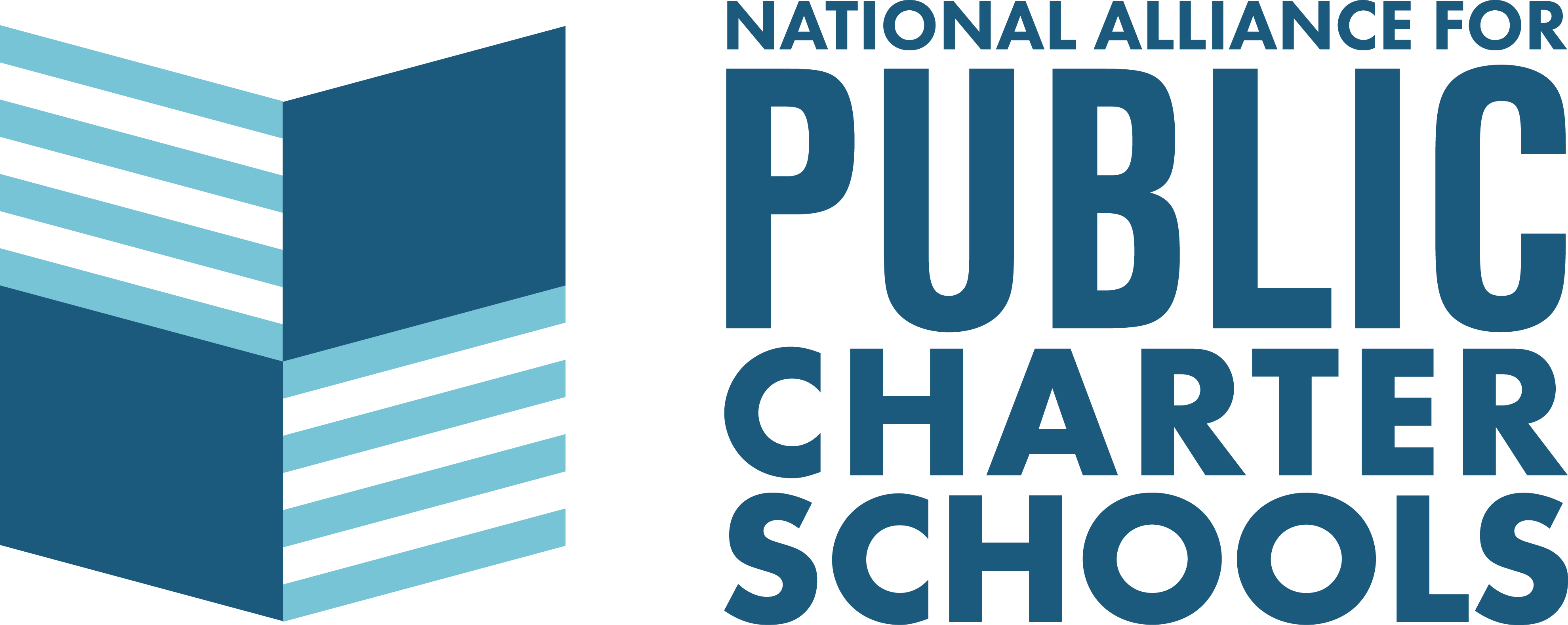3. Where Are Charter Schools Located?
Top Takeaways
- The largest proportion of charter schools are in urban areas, with nearly 60% of charter schools and students located in cities. Over the last five years, urban enrollment grew by 16% (+279,000 students) and suburban enrollment by 13% (+117,000), while rural enrollment also increased modestly (+10%, +28,000 students), and town enrollment remained steady.
- Charter school demographics reflect local communities. In urban areas, more than 70% of students are Black or Hispanic, while rural and town charter schools enroll higher proportions of White students.
- Charter school enrollment growth is led by both major cities and mid-size districts. Los Angeles Unified, New York City, Dade County (FL) had the biggest increases in total students, while places like Cleveland ISD (TX) and Paterson (NJ) saw the fastest growth in charter enrollment share between 2022-23 and 2023-24.
Charter School Landscape—Locale
Charter schools have a nationwide presence, serving students in 44 states, Washington, D.C., Puerto Rico, and Guam as of 2023-24.
- By September 2025, 47 states had enacted charter school laws. Kentucky passed a charter school funding bill in 2022, which will enable charter schools to open in the future; however, no charter schools have opened there as of yet. Similarly, in 2025, North Dakota became the 47th state to pass a law enabling charter schools, and while no schools have opened there, implementation efforts such as rulemaking and public notice are underway.
- A majority of charter schools (58.8%) are located in urban areas, enrolling nearly 59% of all charter students. See Table 3.1 for full enrollment and school counts by locale.
Table 3.1: 2023-24 Charter School Enrollment and School and Campuses Count by Locale
Charter schools serve different populations depending on where they are located. Black and Hispanic students are most concentrated in urban charters, while White students are more likely to attend rural and town charter schools.
- Urban charters enroll a majority of Black and Hispanic students (73.3%).
- Rural (50.9%) and town (51.2%) charters enroll higher shares of White students.
- Native American, Pacific Islander, and multiracial students are more likely to attend charter schools in towns and rural areas. This may be linked to the presence of charter schools in rural indigenous communities. For more information on rural charter schools, see our detailed look at rural charter schools.
Charter school students in urban areas are more likely to qualify for free or reduced-price lunch than those in suburban, town, or rural areas.
- In the 2023-24 school year, 71.6% of charter school students in urban areas were eligible for free or reduced-price lunch (FRPL).
- 51.6% of rural charter students received FRPL. Town and suburban charter schools had similar levels of FRPL students at approximately 60.2% and 54.7%, respectively.
Table 3.2: 2023-24 Charter School Demographics and FRPL by Locale
Charter School Landscape—Geographic School District
The charter footprint continues to grow, reaching 1,525 geographic school districts—13.6% of all nationwide—by 2023-24. Because many charters are coded as independent school districts, the “geographic school district” measure shows where charters actually operate within local boundaries.
Since the first charter school opened in 1992, there has been steady growth in the number of LEAs with at least one charter school within their boundaries. In the 2022-23 school year, the number of LEAs with at least one charter school in their geographic district grew to 1,626 (see Table 3.3).
Table 3.3: Districts with Charter Schools in their Geographic Area
A Look at Charter Enrollment Growth in School Districts
Charters are reshaping education in both the nation’s largest districts and in fast-growing mid-sized districts. The Los Angeles Unified School District and New York City Public Schools have the highest charter school enrollments within their geographic boundaries, while the Orleans Parish School Board (LA) boasts by far the largest percentage of charter school enrollment nationwide at 99.2%.
- Largest enrollments. The Los Angeles Unified School District and New York City Public Schools have the highest numbers of charter students within their geographic boundaries, enrolling more than 140,000 each. Other major charter hubs include Dade County (FL), Philadelphia, Clark County (NV), and Chicago.
- Highest enrollment shares. Orleans Parish (LA) stands out with the nation’s highest concentration of charter enrollment, with 99.2% of its public school students attending charters. Several other districts, such as San Antonio (TX), Indianapolis (IN), Kansas City (MO), and Detroit (MI), have charter shares above 40%, underscoring how central charters have become in those local education systems.
- Fastest growth. In 2023-24, New York City Public Schools recorded the largest year-over-year increase in total charter enrollment, adding more than 4,000 students. Dade County (FL), Twin Rivers (CA), and Houston ISD also saw significant gains. When measured by charter enrollment share, Cleveland ISD (TX) and Paterson (NJ) posted the fastest growth, reflecting how smaller and mid-sized districts can quickly shift their local school landscape.
Table 3.4: Top 10 Districts by Charter School Enrollment, 2023–24
Table 3.5: Top 10 Districts by Charter School Enrollment Share, 2023–24
| State | School District | Percentage |
|---|---|---|
| LA | Orleans Parish | 99.19% |
| TX | San Antonio Isd | 52.50% |
| IN | Indianapolis Public Schools | 50.71% |
| MO | Kansas City 33 | 47.49% |
| CA | Twin Rivers Unf | 47.04% |
| DC | District Of Columbia Pub Schls | 45.55% |
| TX | Edgewood Isd (Central) - San Antonio | 43.04% |
| MI | Detroit Public Schools Community District | 40.76% |
| MO | St. Louis City | 39.13% |
| AZ | Higley Unified District | 37.58% |
Table 3.6: Top 10 Districts by Charter School Enrollment Growth, 2022–23 to 2023–24
| State | School District | Increase |
|---|---|---|
| NY | New York City Public Schools | 4,042 |
| FL | Dade County School District | 4,013 |
| CA | Twin Rivers Unf | 3,610 |
| CA | Temecula Valley Unf | 2,428 |
| TX | Houston Isd | 2,276 |
| NJ | Paterson Public School District | 2,213 |
| FL | Duval County School District | 2,203 |
| NV | Clark County School District | 2,125 |
| SC | Lexington 01 | 1,728 |
| LA | Lafayette Parish | 1,542 |
Table 3.7: Top 10 Districts by Charter School Enrollment Share Increase, 2022–23 to 2023–24
| State | School District | Increase |
|---|---|---|
| TX | Cleveland Isd | 9.22% |
| NJ | Paterson Public School District | 7.55% |
| OK | Jenks | 6.52% |
| CA | Redlands Unf | 6.36% |
| SC | Lexington 01 | 5.99% |
| CA | Twin Rivers Unf | 5.54% |
| CA | Hacienda La Puente Unf | 5.16% |
| CA | Temecula Valley Unf | 4.86% |
| LA | Lafayette Parish | 4.22% |
| TX | Del Valle Isd | 3.81% |
Data Notes:
- As we state in the methodology page, the Common Core of Data (CCD) is one of the National Alliance’s primary data sources. In the CCD, many charter schools across the country are coded as their own independent school district since they operate autonomously from the local educational agency (LEA), also referred to as a “school district,” in their area. This can make district-level analysis difficult when trying to understand how a charter school impacts its local school district. For the purposes of including charter schools, the National Alliance proposed a new variable called “geographic school districts,” which is the geographic boundary of the school district in which a charter school is physically located. We identify the geographic school districts for all public schools by mapping the coordinates of schools onto the NCES school district shapefile using ArcGIS.
- The National Alliance reports charter school enrollment levels in two ways: absolute enrollment number and percentage of charter school students within the total public school student population in a given geographic area. The absolute number of charter school students enrolled in a given jurisdiction may be high even when they compose a low percentage of the overall public school population. In tables 3.4-3.7, we list the top ten 2023-24 LEA geographic school districts by charter school enrollment, percentage of charter school enrollment, charter school enrollment increase between 2022-23 and 2023-24, and percentage of charter school enrollment increase between 2022-23 and 2023-24.
- For all analyses looking at districts, cities, or locales, known virtual schools were excluded. To learn more about our methodology, see the white paper linked here.

